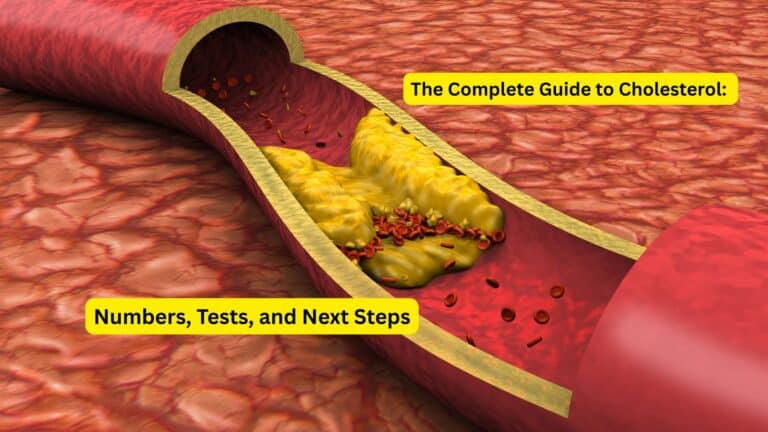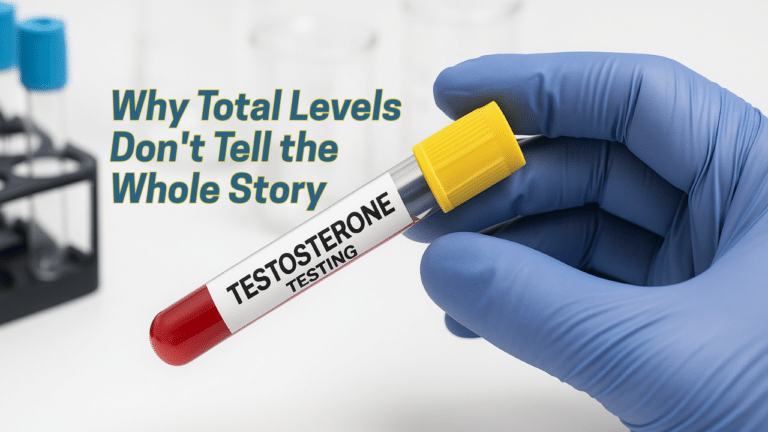Introduction
Hormones serve as your body’s chemical messengers, orchestrating everything from your metabolism and mood to your reproductive health and stress response. When these delicate chemical signals fall out of balance, your body responds with a complex array of symptoms that can affect virtually every aspect of your daily life. Understanding these warning signs is crucial because hormonal imbalances don’t just cause discomfort—they can significantly impact your long-term health and quality of life.
The challenge with hormone imbalance symptoms lies in their diversity and subtlety. What might seem like normal aging, stress, or lifestyle factors could actually be your endocrine system crying out for attention. From unexplained weight fluctuations and persistent fatigue to mood swings and reproductive issues, your body provides clear signals when hormones aren’t functioning optimally. Recognizing these patterns empowers you to take proactive steps toward better health through appropriate testing and treatment.
What Hormones Do in the Body
Hormones function as a sophisticated communication network, with various glands working together to maintain your body’s delicate balance. This intricate system, known as the endocrine system, influences nearly every physiological process, making hormonal health fundamental to your overall well-being.
Major Glands and Hormones
Your endocrine system includes major glands like the pituitary, thyroid, adrenals, ovaries or testes, and pancreas, each producing specific hormones that regulate distinct bodily functions. The pituitary gland, often called the “master gland,” controls other hormone-producing glands while directly managing growth and reproduction. Your thyroid regulates metabolism, determining how quickly your body burns energy and maintains temperature.
The adrenal glands produce cortisol for stress management and blood pressure regulation, while your reproductive organs create sex hormones that influence fertility, mood, and physical characteristics. The pancreas manages blood sugar through insulin production, demonstrating how hormones control both immediate responses and long-term health outcomes. This interconnected network means that problems with one gland can trigger cascading effects throughout your entire system.
Common Symptoms of Hormone Imbalance
Hormonal imbalances manifest through a wide spectrum of symptoms that can initially appear unrelated but often share common underlying causes. These signs frequently develop gradually, making them easy to dismiss as normal life changes or temporary stress responses.
General Symptoms
The most frequently reported symptoms include unexplained weight changes, persistent fatigue, mood swings, hair and skin changes, and digestive issues. Weight fluctuations often occur without changes to diet or exercise habits, particularly around the midsection. Chronic fatigue persists despite adequate sleep, while mood changes can range from irritability and anxiety to depression and emotional instability.
Hair changes might include unexpected thinning, loss, or excessive growth in unusual places. Skin problems often manifest as adult acne, unusual dryness, or changes in texture and appearance. Sleep disturbances become common, with many people experiencing difficulty falling asleep, staying asleep, or feeling rested upon waking. These general symptoms can affect anyone regardless of age or sex, though their intensity and specific presentation may vary based on individual hormone profiles.
Female-Specific Symptoms
Women experience unique hormonal challenges throughout their lives, with symptoms often tied to reproductive cycles and life stages. These manifestations can be particularly disruptive because they affect both physical comfort and emotional well-being.
Estrogen & Progesterone Imbalance
Female hormone imbalances commonly cause irregular or heavy periods, hot flashes, vaginal dryness, adult acne, anxiety, depression, and sleep disturbances. Menstrual irregularities represent one of the earliest and most obvious signs, with cycles becoming unpredictable, unusually heavy, or accompanied by severe cramping. Hot flashes and night sweats can occur at any age, not just during menopause, particularly when estrogen levels fluctuate dramatically.
Mood changes often correlate with hormonal cycles, creating patterns of anxiety, depression, or irritability that seem to appear without external triggers. Sleep quality frequently deteriorates, with many women experiencing difficulty maintaining deep sleep throughout the night. Physical symptoms like breast tenderness, bloating, and changes in libido can significantly impact daily comfort and relationships.
PCOS
Polycystic ovary syndrome exemplifies how hormonal imbalances can create complex health challenges. PCOS affects approximately 5-10% of reproductive-age women, making it one of the most common endocrine disorders. This condition involves multiple hormone disruptions, including elevated androgens, insulin resistance, and irregular ovulation patterns.
Women with PCOS often experience weight gain that’s difficult to manage, particularly around the abdomen, along with irregular periods or complete absence of menstruation. Excess hair growth on the face and body, male-pattern baldness, and persistent acne are common manifestations of elevated androgen levels. The condition also increases risks for diabetes, cardiovascular disease, and fertility challenges, highlighting the importance of early recognition and management.
Male-Specific Symptoms
Men’s hormonal health issues often go unrecognized because symptoms can be subtle and are frequently attributed to aging or lifestyle factors. However, hormonal imbalances in men can significantly affect physical performance, emotional well-being, and overall quality of life.
Low Testosterone
Male testosterone imbalances typically manifest as erectile dysfunction, reduced muscle mass, mood changes, and hair loss. Sexual dysfunction often represents the most noticeable early symptom, including decreased libido, difficulty achieving or maintaining erections, and reduced sexual satisfaction. These changes can create significant psychological distress and relationship challenges.
Physical changes become apparent as muscle mass decreases while body fat increases, particularly around the midsection. Energy levels drop significantly, affecting work performance and recreational activities. Mood changes include increased irritability, depression, difficulty concentrating, and loss of motivation. Sleep quality often deteriorates, creating a cycle where poor rest further depletes energy and worsens other symptoms.
The prevalence varies by age, ranging from 2.1% to 12.3% of men depending on diagnostic criteria and population studied. This wide range reflects both the complexity of testosterone deficiency and the importance of proper testing to distinguish between normal age-related changes and clinically significant imbalances.
Other Key Hormone Imbalances
Beyond reproductive hormones, several other critical hormones can create significant symptoms when imbalanced. These systems often interact with each other, meaning problems in one area can trigger issues throughout the endocrine system.
Thyroid Hormones
Thyroid dysfunction affects metabolism, energy production, and temperature regulation throughout your body. Hypothyroidism, or low thyroid function, typically causes persistent fatigue, unexplained weight gain, cold sensitivity, dry skin, hair loss, and cognitive difficulties often described as “brain fog.” Hyperthyroidism, or excessive thyroid activity, creates opposite symptoms including rapid weight loss, heat intolerance, anxiety, rapid heartbeat, and difficulty sleeping.
Thyroid imbalances can be particularly frustrating because symptoms often develop gradually and mimic other conditions. Many people struggle with undiagnosed thyroid issues for years, attributing their symptoms to stress, aging, or lifestyle factors when effective treatment could restore their energy and well-being.
Cortisol
Chronic stress disrupts cortisol production, creating either persistently elevated levels or inadequate responses to stress. High cortisol levels contribute to weight gain around the midsection, high blood pressure, elevated blood sugar, mood disorders, and difficulty sleeping. The body’s stress response system becomes overactive, leading to a constant state of physiological alertness that exhausts other bodily functions.
Low cortisol, often called adrenal fatigue, manifests as profound exhaustion, difficulty handling stress, low blood pressure, salt cravings, and mood instability. People with cortisol imbalances often feel “tired but wired,” experiencing fatigue alongside anxiety or restlessness that prevents restful sleep.
Insulin
Insulin resistance represents one of the most common and dangerous hormonal imbalances, affecting millions of people worldwide. Early symptoms include increased hunger, particularly for sweets and carbohydrates, difficulty losing weight despite diet and exercise efforts, and energy crashes after meals. Dark patches of skin, particularly around the neck and armpits, often indicate developing insulin resistance.
As insulin resistance progresses, blood sugar levels become increasingly difficult to control, leading to prediabetes and eventually type 2 diabetes if left untreated. The condition also increases risks for cardiovascular disease, making early detection and intervention crucial for long-term health.
Gut-Hormone Connection
Recent research reveals fascinating connections between hormonal health and digestive function. Hormone fluctuations can significantly affect gut motility and sensitivity, contributing to conditions like irritable bowel syndrome. Women often notice that digestive symptoms correlate with their menstrual cycles, experiencing bloating, cramping, and altered bowel habits during specific phases.
The gut-brain-hormone axis demonstrates how stress hormones can alter digestive function, while digestive health influences hormone production and regulation. This bidirectional relationship means that addressing hormonal imbalances can improve digestive symptoms, while supporting gut health can enhance overall hormonal balance.
Why Testing Matters
Accurate hormone testing provides the foundation for effective treatment and long-term health optimization. Without proper testing, symptoms may be misattributed to other causes, leading to ineffective treatments and continued suffering.
Early detection and appropriate treatment can prevent serious complications like infertility, osteoporosis, and cardiovascular disease while significantly improving quality of life. Hormonal imbalances often worsen over time when left untreated, making early intervention crucial for the best outcomes. Testing also establishes baseline values that can guide treatment decisions and monitor progress over time.
Walk-In Lab offers comprehensive hormone panels that assess thyroid function, reproductive hormones, cortisol levels, insulin sensitivity, and other key markers. These tests provide detailed information about your hormonal status, helping healthcare providers develop personalized treatment strategies. The convenience and accessibility of professional testing removes barriers that might prevent people from seeking the answers they need.
Modern hormone testing goes beyond basic screening to include advanced markers that provide deeper insights into hormonal function. This comprehensive approach ensures that subtle imbalances are detected early, when they’re most responsive to treatment interventions.
FAQs
What are common hormone imbalance symptoms?
The most frequently reported symptoms include unexplained weight changes, persistent fatigue, mood swings, hair loss or excessive growth, skin changes, irregular menstrual cycles in women, erectile dysfunction in men, and digestive issues. These symptoms often develop gradually and can affect multiple body systems simultaneously.
Which hormones can cause imbalances?
The primary hormones involved in common imbalances include estrogen, progesterone, testosterone, cortisol, thyroid hormones (T3 and T4), insulin, and growth hormone. Each hormone affects different body systems, so symptoms vary depending on which specific hormones are imbalanced.
How do symptoms differ between men and women?
Women typically experience reproductive-related symptoms like irregular periods, hot flashes, mood swings tied to cycles, and changes in breast tissue. Men more commonly report sexual dysfunction, decreased muscle mass, mood changes, and energy decline. However, both sexes can experience fatigue, weight changes, and mood disorders from hormonal imbalances.
Can hormonal imbalances cause digestive symptoms?
Yes, hormones significantly influence digestive function. Fluctuations can affect gut motility, stomach acid production, and intestinal sensitivity, contributing to symptoms like bloating, cramping, irregular bowel movements, and food intolerances. Many people notice digestive symptoms correlate with hormonal cycles.
When should I consider hormone testing?
Consider testing when you experience persistent symptoms that affect your daily life, including unexplained fatigue, mood changes, weight fluctuations, reproductive issues, or sleep disturbances. Testing is particularly important if symptoms don’t improve with lifestyle changes or if multiple symptoms occur together.
Conclusion
Recognizing hormone imbalance symptoms empowers you to take control of your health before minor issues become major problems. Your body communicates constantly about its internal state, and hormonal symptoms represent important messages that shouldn’t be ignored or dismissed as normal parts of aging or stress.
The interconnected nature of the endocrine system means that addressing hormonal imbalances can create positive effects throughout your body, improving energy, mood, weight management, sleep quality, and overall well-being. Modern testing methods make it easier than ever to identify specific imbalances and develop targeted treatment strategies.
Taking action through proper testing represents an investment in your long-term health and quality of life. Understanding your hormonal status provides the foundation for making informed decisions about treatment options, lifestyle modifications, and preventive care.
Order your comprehensive hormone panel with Walk-In Lab today to discover what your body is trying to tell you and take the first step toward optimal hormonal health. Early detection and appropriate intervention can restore your energy, mood, and vitality while preventing future health complications.
This content is for educational purposes only and is not a substitute for professional medical advice, diagnosis, or treatment. Always consult with qualified healthcare providers regarding questions about medical conditions and treatment options.






